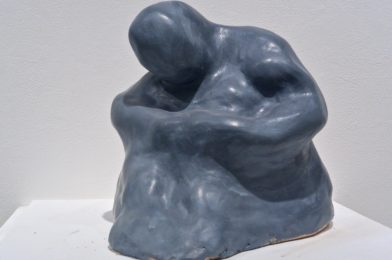for the love of god
dig your feet into the earth and sing of cellulite
of the thicket of gnarled shadow at the apex of thigh
of the sweet tart smell of you pooling under your arms on a summer day
of muffin top and peach fuzz and caesarian scar
because in all this is woman
for the love of god
grind your toes into the grass
and sing in her name
of the painful jut of hipbone and shoulder blade
of the line of the spine and the bend of a hip
of crows feet and laugh lines and all the creases
because in all of them is woman
for the love of god
wade into the surf
and sing of stretch marks
blooming wine purple
of chipped nails and chipped teeth
and knobbly knuckles and bony knees
and yes, of Adam’s apple bobbing in the throat of Eve
in that too is woman
for the love of god
let the sun deep into your flesh
turn blood into golden ichor
and sing of rose bleeding past binary
of throats raw and voices hoarse
with the work of declaring our presence
sing of belly laugh and groan and sob and scream
sing of hurricane and wildfire
orchid bloom and bee sting
of mama bear and mother hen
of being and breathing and seeing and living
because in all this is woman
all of it is woman

